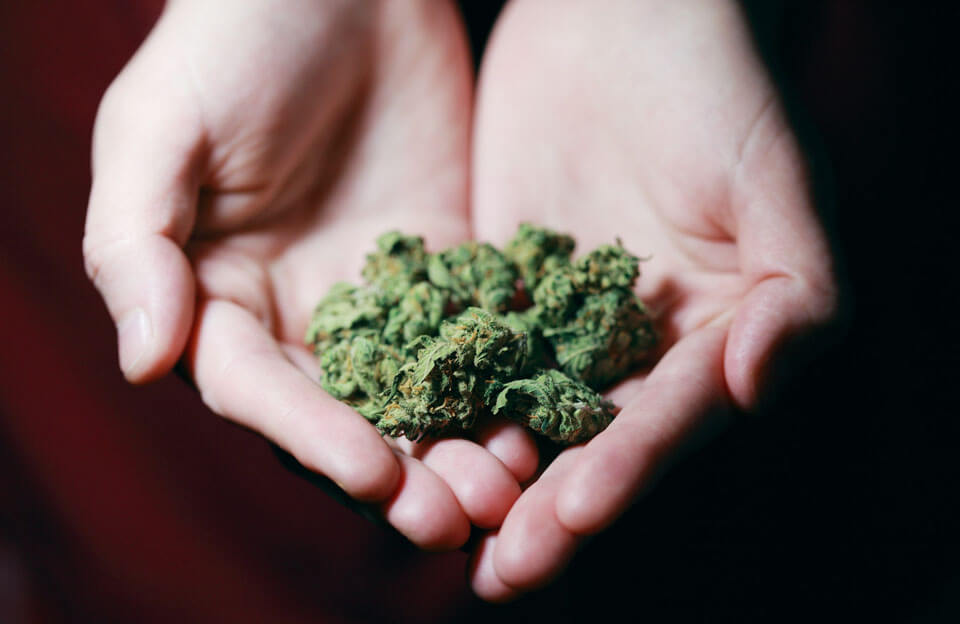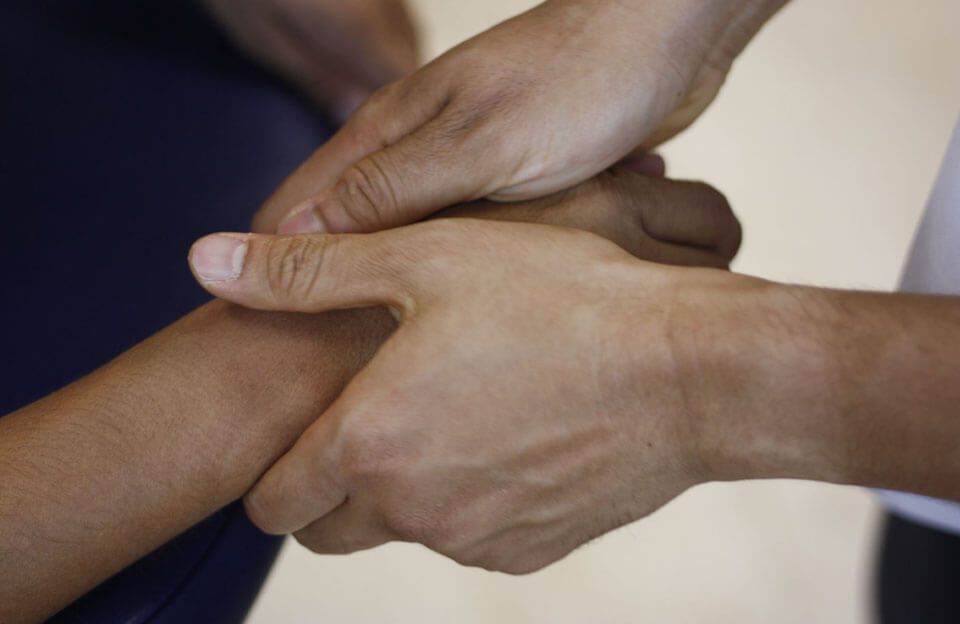Cannabis, also known as marijuana, has undergone some transformation in the past few years. Once only considered a recreational drug, many researchers have been examining its potential medical uses. This applies to the whole plant, tetrahydrocannabivarin (THCV), and cannabidiol (CBD), two of its active ingredients.
Claims have even been made about cannabis’ effect on diabetics, including that it lowers blood sugar and blood pressure and decreases the inflammatory damage diabetes causes. Is there any merit to all these claims? Let’s take a look.
Positive Effects of Cannabis for Diabetics
Some of the claims made about cannabis for diabetics include:
- Decreases blood sugar
- Decreases blood pressure
- A lower amount of pain from neuropathy and prevent the nerve damage that causes it
- Prevent diabetic retinopathy [1]
This is a pretty lofty set of claims. How many are true?
The first claim that cannabis can decrease blood sugar levels has some amount of evidence supporting it. A 2013 study found that marijuana users had a 16 percent lower fasting insulin rate than those who did not use the drug. [2]
A case study from 2020 found that a man who began taking CBD oil was able to discontinue one form of insulin shortly after starting to take the oil. [3] Researchers who randomly assigned diabetics to take CBD, THVC, both, or a placebo found that those who got THVC had significantly decreased fasting blood glucose and those who got CBD had lower levels of a hormone called resistin, which has been associated with increased insulin resistance. [4]
However, a study of diabetics who used cannabis regularly found they had a higher rate of diabetic ketoacidosis, and their A1C levels varied more than non-users. [5] While a great deal of research still needs to be done in this area, it is possible that some forms of cannabis help regulate blood sugar levels.
The evidence that cannabis decreases blood pressure is mixed. A study that monitored blood pressure over 24 hours in people with high blood pressure who had started taking cannabis found that the group had lower blood pressure when monitored 3 months after starting as opposed to when monitored before starting the drug. [6]
However, one of the well-known side effects of marijuana use is increased heart rate, which could lead to an increase in blood pressure. Most studies of those side effects have been done with marijuana that is smoked and not in forms like CBD oil, but this is a potential concern. [7]
Diabetic neuropathy is when blood flow to nerve cells in the hands and feet decreases, leading to damage or death. Pain is a common result. Can cannabis help? When a study compared a topical form of CBD and THC to placebo in diabetic neuropathy sufferers, a statistically significant amount of those who got the topical oil reported a reduction in pain. [8] While that’s only one study, the use of double blinding (neither the recipients nor those who gave the drug were aware if it was a placebo or not) increases the significance of its results.
Diabetic retinopathy is a condition where the blood vessels damage the retina, leading to loss of vision. In a study in rats, doses of CBD oil prevented retina cells from dying. The researchers emphasized that these conclusions were tentative and needed more research. Still, it’s a promising start. [9]
Negative Effects of Cannabis for Diabetics
As it may be clear from above, lots of the claims of the benefits of cannabis for diabetes are far from being proven. And there are potential problems associated with cannabis use.
One is the possibility of addiction. Many people use cannabis without any problems, but it’s estimated that 9 percent of those who take it will become addicted. [10]
Another is increased blood sugar. The study mentioned above that found more widely varying blood sugar rates in cannabis users versus non-users is a big red flag. [11] While other studies have found different things, if you have a problem with your blood sugar levels, already it may not be worth the risk.
A third is increased appetite. This is typically associated with either smoking marijuana or taking the whole plant in capsule form. (The latter is often used by people undergoing chemotherapy.) Since diabetics must carefully watch their diets, an uncontrolled appetite is a very unwelcome side effect. [12]
Finally, although it isn’t specifically a negative effect, CBD compounds are currently only approved for use in some rare forms of epilepsy. For all other uses, CBD is marketed as a supplement. There’s no system to check how much of the oil is in any over-the-counter product. So you may not be able to know what you’re really buying. [13]
Tips for Using Cannabis with Diabetes
A reminder – cannabis isn’t legal everywhere, even for medicinal use. Check the local laws if you want to try it in any form to see what the status is where you live.
If cannabis products are legal in your area, consult with your doctor before starting to take any of them, even those available over the counter. They may negatively interact with other medications you take to manage your diabetes.
CBD oils are available at many stores selling medicines or other supplements. They can provide a starting point for diabetics wanting to try cannabis. They are usually taken by mouth or rubbed on the skin, so they do not affect the system as quickly as inhaled products.
It’s best not to take any product alone if it is the first time you have taken it. Impaired mental status can be a side effect of cannabis usage, and it is safer to have someone with you if this occurs. [14]
FAQ
Can Taking CBD Cause Diabetes?
There is some evidence that smoking marijuana can increase the risk of type 2 diabetes, but there is no evidence that CBD oil does this.
How to Deal with The Munchies with Diabetes?
The best way to deal with the “munchies,” or hunger pangs from marijuana use, is to stick to CBD or THVC oil. Those preparations contain many of the same active compounds without the appetite increase.
How Long Does THC Stay in a Diabetics System?
THC usually stays in the system for a few days at most. It may stay in the system longer if a diabetic has kidney disease.
Final Thoughts
Caution should be the word of the day when discussing cannabis and its effects on diabetes. There is some evidence that its usage can help some problems commonly associated with diabetes. But most of this research is in its infancy, and many diabetics might find it simpler to wait for more evidence.
Others might feel the potential benefits are worth the risk and will try CBD oil or some other form of medical cannabis. It’s ultimately up to the diabetic themselves.
References
- Editor. (2019, January 15). Cannabis and Diabetes. Diabetes. https://www.diabetes.co.uk/recreational-drugs/cannabis.html
- Penner, E. A., Buettner, H., & Mittleman, M. A. (2013). The Impact of Marijuana Use on Glucose, Insulin, and Insulin Resistance among US Adults. The American Journal of Medicine, 126(7), 583–589. https://doi.org/10.1016/j.amjmed.2013.03.002
- Mattes, R. G., Espinosa, M. L., Oh, S. S., Anatrella, E. M., & Urteaga, E. M. (2020). Cannabidiol (CBD) Use in Type 2 Diabetes: A Case Report. Diabetes Spectrum, 34(2), 198–201. https://doi.org/10.2337/ds20-0023
- Jadoon, K. A., Ratcliffe, S. H., Barrett, D. A., Thomas, E. L., Stott, C., Bell, J. D., O’Sullivan, S. E., & Tan, G. D. (2016). Efficacy and Safety of Cannabidiol and Tetrahydrocannabivarin on Glycemic and Lipid Parameters in Patients With Type 2 Diabetes: A Randomized, Double-Blind, Placebo-Controlled, Parallel Group Pilot Study. Diabetes Care, 39(10), 1777–1786. https://doi.org/10.2337/dc16-0650
- Porr, C. J., Rios, P., Bajaj, H. S., Egan, A. M., Huot, C., Batten, R., Bishop, L., Ryan, D., Davis, E., Darvesh, N., Rahman, A., Asghari, S., Acheampong, L., & Tricco, A. C. (2020). The effects of recreational cannabis use on glycemic outcomes and self-management behaviours in people with type 1 and type 2 diabetes: a rapid review. Systematic Reviews, 9, 187. https://doi.org/10.1186/s13643-020-01411-9
- Abuhasira, R., Haviv, Y. S., Leiba, M., Leiba, A., Ryvo, L., & Novack, V. (2021). Cannabis is associated with blood pressure reduction in older adults – A 24-hours ambulatory blood pressure monitoring study. European Journal of Internal Medicine. https://doi.org/10.1016/j.ejim.2021.01.005
- Mayo Clinic Staff. (2017). Marijuana. Mayo Clinic. https://www.mayoclinic.org/drugs-supplements-marijuana/art-20364974
- Serpell, M., Ratcliffe, S., Hovorka, J., Schofield, M., Taylor, L., Lauder, H., & Ehler, E. (2014). A double-blind, randomized, placebo-controlled, parallel group study of THC/CBD spray in peripheral neuropathic pain treatment. European Journal of Pain (London, England), 18(7), 999–1012. https://doi.org/10.1002/j.1532-2149.2013.00445.x
- El-Remessy, A. B., Al-Shabrawey, M., Khalifa, Y., Tsai, N.-T., Caldwell, R. B., & Liou, G. I. (2006). Neuroprotective and Blood-Retinal Barrier-Preserving Effects of Cannabidiol in Experimental Diabetes. The American Journal of Pathology, 168(1), 235–244. https://doi.org/10.2353/ajpath.2006.050500
- National Institute on Drug Abuse. (2020, July). Is marijuana addictive? National Institute on Drug Abuse. https://nida.nih.gov/publications/research-reports/marijuana/marijuana-addictive
- Porr, C. J., Rios, P., Bajaj, H. S., Egan, A. M., Huot, C., Batten, R., Bishop, L., Ryan, D., Davis, E., Darvesh, N., Rahman, A., Asghari, S., Acheampong, L., & Tricco, A. C. (2020). The effects of recreational cannabis use on glycemic outcomes and self-management behaviours in people with type 1 and type 2 diabetes: a rapid review. Systematic Reviews, 9, 187. https://doi.org/10.1186/s13643-020-01411-9
- National Institute on Drug Abuse. (2020, July). What are marijuana’s effects? National Institute on Drug Abuse. https://nida.nih.gov/publications/research-reports/marijuana/what-are-marijuana-effects
- CBD & Diabetes | ADA. (n.d.). Diabetes.org. Retrieved March 23, 2023, from https://diabetes.org/healthy-living/medication-treatments/cbd-diabetes
- National Institute on Drug Abuse. (2020, July). What are marijuana’s effects? National Institute on Drug Abuse. https://nida.nih.gov/publications/research-reports/marijuana/what-are-marijuana-effects


